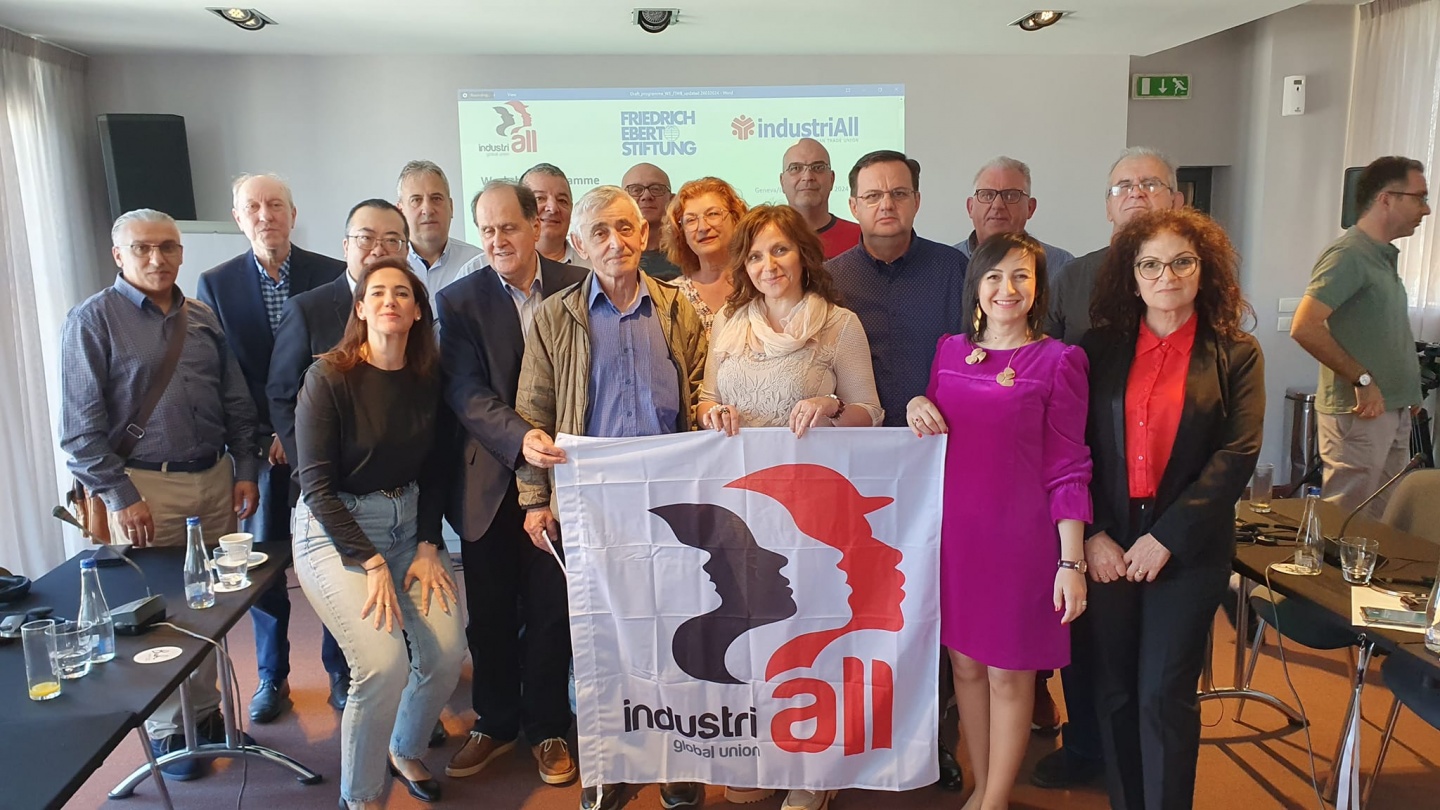10 April, 2024IndustriALL Global Union and IndustriAll European Trade Union, supported by the Friedrich-Ebert-Stiftung (FES) organized a workshop in Belgrade, Serbia, on April 4-5. The gathering brought together 25 affiliates from industrial sectors across the Western Balkans, including Albania, Bosnia & Herzegovina, Croatia, Montenegro, North Macedonia, and Serbia.
The focus was to look at the challenges and opportunities associated with the energy transition in the region. The workshop served as a platform for an in-depth examination of the nuances surrounding the transition towards knowledge-based economies, a journey full of challenges and opportunities.
One of the dominant themes that emerged from the discussions was the pressing need for skilled labour, a critical component in navigating the complexities of economic transformation. Affiliates talked about the landscape of transitioning economies, highlighting the need to invest in research and development, cultivating a proficient workforce, and establishing incentives to drive decarbonization efforts forward.
In the context of the green transition and the arrival of Industry 4.0, unions stressed the significance of collaboration among stakeholders, particularly within the automotive sector and the broader innovation ecosystem. Such collaborative actions, they argued, are instrumental in reinforcing competitiveness amidst soaring energy prices and stiff competition from global counterparts.
Another common challenge in the region is the lack of trade union participation in decision-making bodies on Just Transition due to political constraints. There is a need to strengthen the regional union cooperation to promote social dialogue.
Isidora Beraha, representing the Institute of Economic Sciences, provided insight into the regional dynamics and the transformative potential in the Western Balkans countries' industrial value chains. Emphasizing the pivotal role of regional cooperation, Beraha explained how the pathways can empower companies in the region to climb the ladder of global value chains, thereby enhancing their competitiveness on the international stage.
“The challenges and investment needs of the Western Balkan countries are significant also in the context of the EU enlargement process. We must ensure that the transformation process is ruled by the principles of a Just Transition promoting crucial workers’ and trade union rights. In a context of the needs to decarbonise, we must move away from profit-driven strategy making towards more sustainable production and consumption patterns with an active participation of trade unions. The transition is not possible without the workers, so we must strengthen social dialogue and give them a seat at the table. Nothing about us, without us!”,
Judith Kirton-Darling, General Secretary of industriAll Europe.
The workshop not only served as a forum for dialogue but also as an opportunity to create actionable strategies aimed at navigating the complexities of the energy transition. By fostering collaboration, knowledge-sharing, and collective action, IndustriALL Global and IndustriAll Europe and their affiliates are at the forefront of driving positive change and moving towards a sustainable future for the Western Balkans region.
"This workshop underscores the commitment of IndustriALL and its partners to tackle pressing issues head-on, steering the course towards a future that is not only sustainable but also equitable, inclusive and just for all",
said Kan Matsuzaki, Assistant General Secretary at IndustriALL Global Union.




